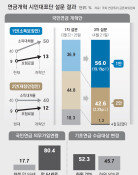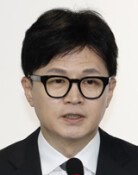Tax Rule to Unearth W3 Tln in Unreported Income
Tax Rule to Unearth W3 Tln in Unreported Income
Posted May. 06, 2010 12:44,
A wedding was held at a wedding hall in Daejeon early last month. After the event, the families of the newlyweds paid the hall a fee of 15 million won (13,435 U.S. dollars) in cash.
The next day, the brides family reported to tax authorities that the hall failed to issue a cash receipt.
The hall was hit with an audit and fined six million won (5,374 dollars). A tax official said the hall was supposed to pay half of the 15 million won in tax but received a discount because it did not resist the tax.
We plan to give the person who reported the wedding hall three million (2,687 dollars) in reward money, the official said.
A new rule took effect last month requiring businesses to issue cash receipts to their clients. The rule is producing more results than expected in detecting tax evasion by high income earners.
Judging from the trend of receipt issuance in the first month after the introduction of the rule, the National Tax Service expects about three trillion won (2.6 billion U.S. dollars) in additional tax revenue.
Businesses affected by the new rule are reportedly fretting over the exposure of much of their unreported income.
After the tax service required the self-employed and businesses to issue receipts to their customers for large cash purchases last month, the volume of transactions in which cash receipts were issued surged some 50 percent from a year earlier, tax authorities said.
Those subject to the new rule include lawyers, doctors, accountants, tax practitioners, private institutions, real estate agencies, wedding halls, funeral agencies and country clubs.
A tax official said the new system is expected to expose hidden tax sources of at least three trillion won by years end, given that cash receipts worth 7.5 trillion won (6.72 billion U.S. dollars) were issued by such businesses last year.
Assuming that a 10 percent tax is levied on the exposed tax sources, additional tax revenue of about 300 billion won (268.7 million dollars) is expected, or equal to the taxes paid by 300,000 salaried workers last year.
peacechaos@donga.com







